The Manikarnika Ghat in Varanasi, where Hindus perform cremations
The 'Modi-fied' Face Of Varanasi
Varanasi’s twice-elected Member of Parliament (MP), Narendra Modi, has begun to sculpt the eternal city in his own image. His passion project—a wide, swanky corridor around the Kashi Vishwanath temple—has brought increased footfalls to the town. The roads running to the fabled ghats have also undergone a makeover. Just like the ghats themselves, such as Assi. The city’s newest ghat, literally called NaMo, doubles up as a glitzy promenade and a ‘theme park’, where splash pool, inflatable castles, trampolines, and toy rides make Hinduism cool. The new developments, though, also prod us to consider their cost. Many houses and temples were destroyed to accommodate the corridor. The city’s Ganga-Jamuni tehzeeb, too, has begun to change. Earlier this year, the district court allowed daily aartis in the cellar of the Gyanvapi mosque. The Varanasi Nagar Nigam’s new proposals include banning the meat shops within the two-kilometre radius of the Kashi Vishwanath temple and widening the roads in a Muslim-dominated locality, Daalmandi, so that Hindu pilgrims can have easy access to the corridor. As the city gears up to vote in less than two weeks, on June 1, its fate—and narratives of development—await a new chapter.
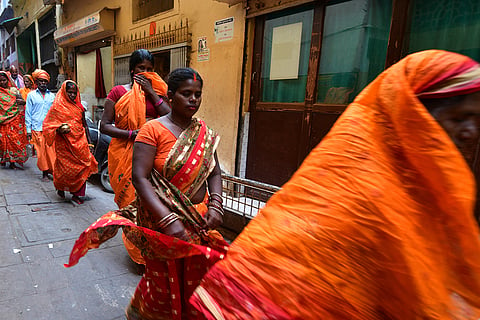
Devotees in Varanasi | Photo: Tribhuvan Tiwari/Outlook
Devotees in Varanasi heading towards a temple
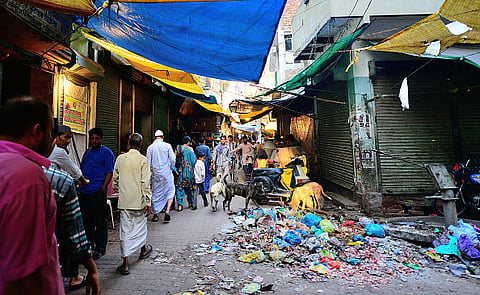
Trash litter on road Photo by Priyanka Parashar/Mint via Getty Images
Trash litter a lane in Daalmandi, Varanasi
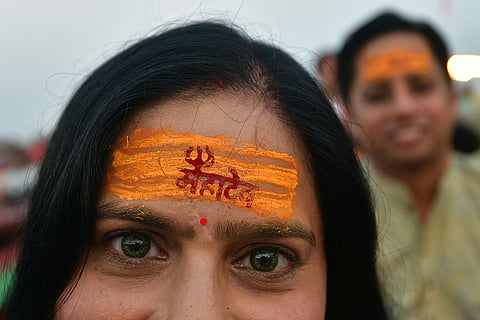
A devotee of Lord Shiva | Photo: Tribhuvan Tiwari/Outlook
A devotee reveres Lord Shiva—also known as Mahadev (the greatest God)—on her forehead
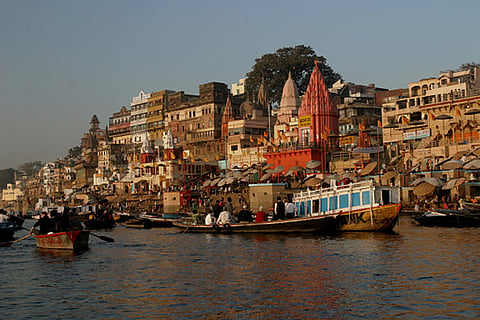
Boat ride in Varanasi Photo by: Rahul Sharma/ INDIAPICTURE/Universal Images Group via Getty Images
Boat rides near the ghats of Varanasi
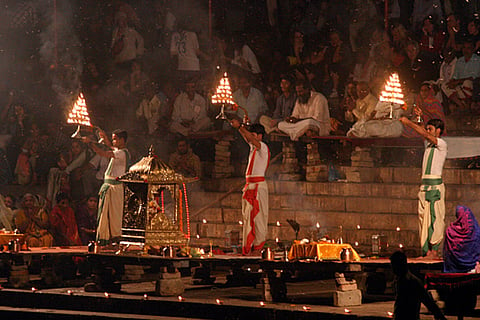
Evening aarti Photo by: Rahul Sharma/ INDIAPICTURE/Universal Images Group via Getty Images
Evening aarti at the Dashashwamedh Ghat
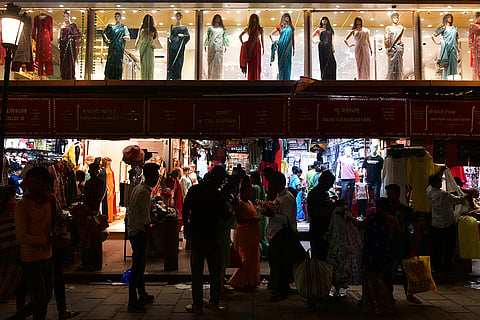
Shops in revamped Varanasi | Photo: Tribhuvan Tiwari/Outlook
The revamped road leading to the Dashashwamedh Ghat
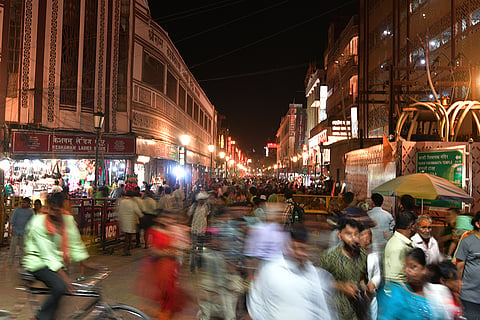
Revamped road to Dashashwamedh Ghat | Photo: Tribhuvan Tiwari/Outlook
The road leading to the Dashashwamedh Ghat

Mukti Bhawan | Photo: Tribhuvan Tiwari/Outlook
The priests at Mukti Bhawan, where devout Hindus check in to literally die
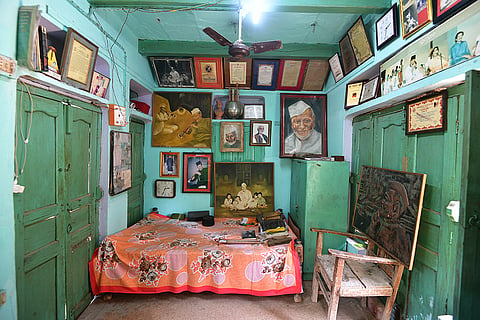
Ustad Bismillah Khan’s house | Photo: Tribhuvan Tiwari/Outlook
A room on the terrace in Ustad Bismillah Khan’s house, where the sitar maestro lived and practiced

Namo Ghat | Photo: Tribhuvan Tiwari/Outlook
The NaMo Ghat in Varanasi
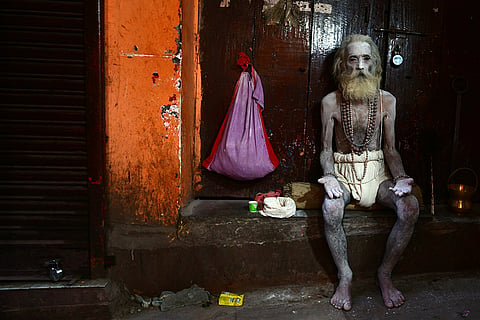
A saadhu | Photo: Tribhuvan Tiwari/Outlook
An old saadhu in a gully in Varanasi
Published At: